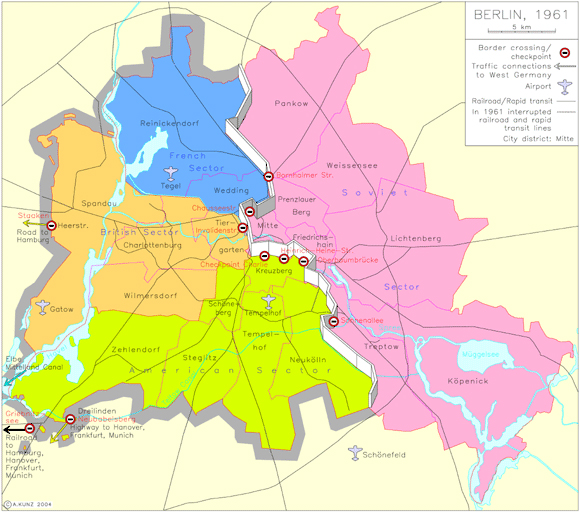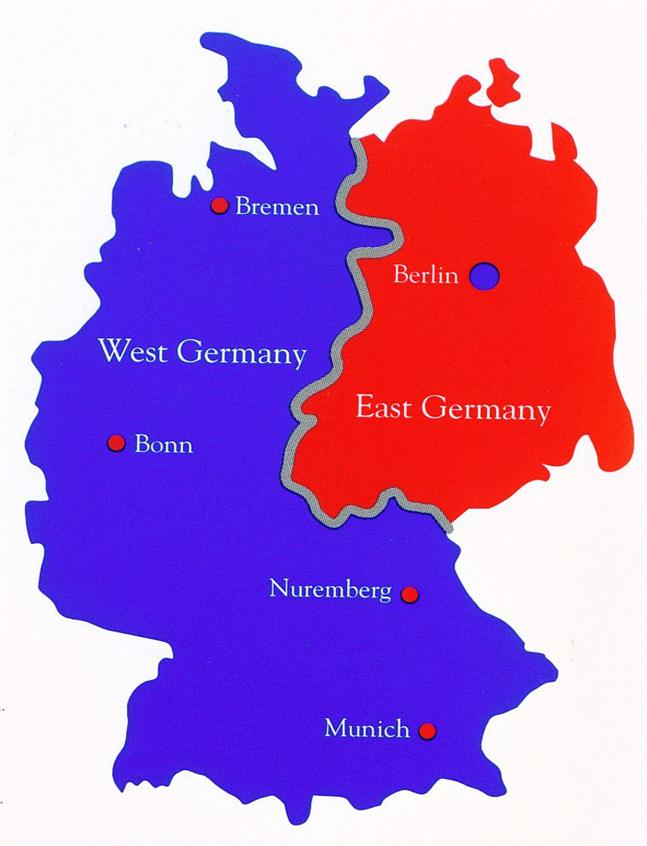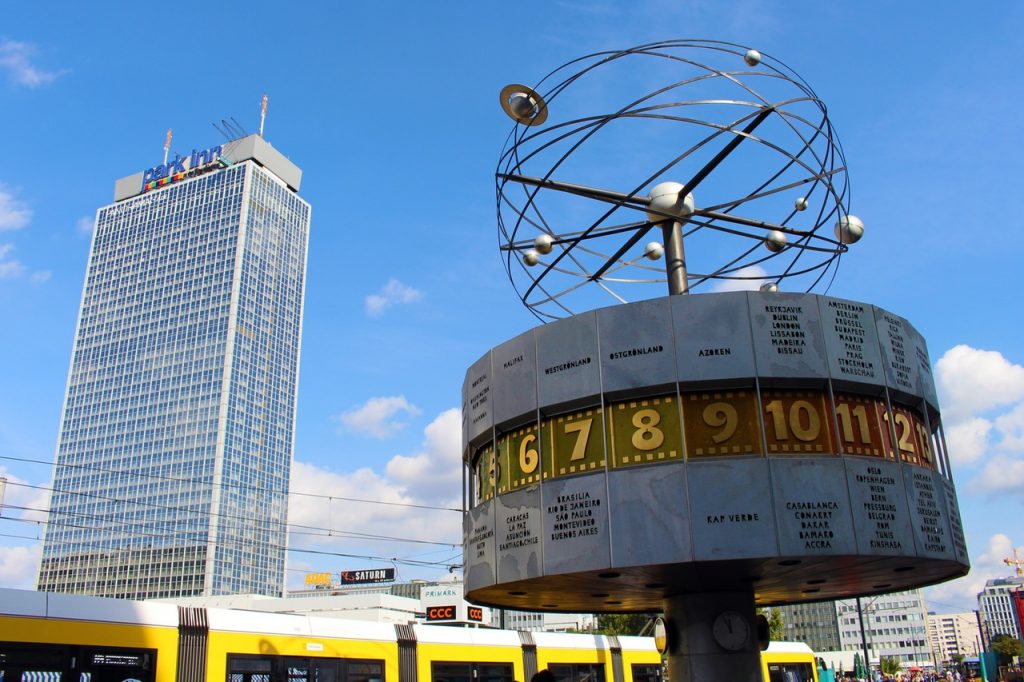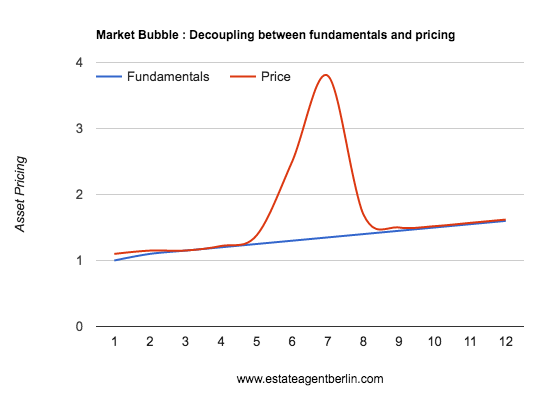All Forum Posts by: Hugues Armand-Delille
Hugues Armand-Delille has started 9 posts and replied 37 times.
 Post: How to build an investment community in Berlin Germany ?!
Post: How to build an investment community in Berlin Germany ?!
- Professional
- Berlin, Berlin
- Posts 40
- Votes 13
Hey guys,
@Account Closed
I would like to organize a meet up. Are any of you in berlin this Weekend? or the following?
I thought we can have some Drinks at my place and get to know each other.
Who's in?
 Post: Rent control in Berlin (Germany)
Post: Rent control in Berlin (Germany)
- Professional
- Berlin, Berlin
- Posts 40
- Votes 13
Milieuschutz-Gebiete, what is it?
The term could be translated as “protected area” or “zone or protection”, or Berlin Rent control. In essence, Milieuschutz-Gebiete are areas of Berlin where rents are protected (by the municipality). Berlin’s real estate boom has brought a lot of tension in the social structure of the city. Local population is reluctant to embrace the surge in rent prices.
Berlin Rent control
So how does this work? The municipality of Berlin (namely, its districts) has a “preemptive purchase right”. In other words, if an owner of a building wants to sell, the city district has a right to purchase the house from the seller. This prevents the house from being renovated, and rents from being increased.
This tactic is meant to prevent areas for over gentrifying. By purchasing the building, the city guarantees that no rent increases will take place. Objectively, no one ever welcomes a rent increase. Nevertheless, Berlin’s popularity will be difficult to stop.
Besides, if replicated on a wide scale this policy bares many issues with it. Most of all, how long can the city sponsor rents?
Long term impact?
The Milieu-Schutzgebiet tactic will lead the city to systematic acquisition of depreciated assets in premium locations. This necessarily leads to:
- bankruptcy of the municipality,
- raising taxes in Berlin,
- reselling of the buildings to investors (down the line i.e. deferring the issue).
The city will soon run out of money for the acquisition and will have to raise taxes strongly to support this buying frenzy of depreciated houses. Why? Because, buildings have operating costs which will keep rising. Since the rental income is deliberately capped, the building will bring negative yields, costing the city even more. On top of this, the heavier maintenance and refurbishment costs (Capex) will bleed Berlin dry.
Ultimately, this will lead to a depreciation of Berlin’s housing inventory in the best locations. The usual way for governments to deal with such issue is to increase taxes to compensate for it. Not a pretty picture either for the future of Berlin’s. At some point, this very costly inventory on the city’s balance sheet will result in a discounted offsetting of these assets to investors. Unless the attractiveness of Berlin Subsides, the Milieuschutz-gebiete policy will only defer the problem to a later time. There a no signs of being less attractive in the short / medium term.
What does it mean for a buyer?
For the buyer in those zones, wether investor or private individual, this means many types of restriction:
- Special declaration of type of refurbishment
- Authorization needed from the district
- No or very limited rent increase
- limitation on reselling price
Where are the Milieuschutz-Gebiete?
Friedrichshain-Kreuzberg: Weberwiese, Boxhagener Platz, Bergmannstraße-Nord, Chamissoplatz, Greafestraße, Hornstraße, Luisenstadt, Petersburger Straße, Ritterstraße (in Prüfung), Kottbusser Tor Süd (in Prüfung).
Mitte: Seestraße, Sparrplatz, Leopoldplatz, Waldstraße, Birkenstraße.
Neukölln: Reuterplatz, Schillerpromenade, Rixdorf, Flughafenstraße/Donaustraße, Körnerpark, Hertzbergplatz/Treptower Straße (in Prüfung), Silbersteinstraße/Glasower Straße (in Prüfung).
Schöneberg: Schöneberger Insel, Barbarossaplatz/Bayerischer Platz, Bautzener Straße, Kaiser-Wilhelm-Platz.
Pankow: Falkplatz, Teutoburger Platz, Kollwitzplatz, Helmholtzplatz, Bötzowstraße, Winsstraße, Arnimplatz, Pankower Zentrum, Humannplatz, Ostseestraße/Grellstraße.
Treptow-Köpenick: Alt-Treptow.
 Post: East Berlin vs. West Berlin Germany?!
Post: East Berlin vs. West Berlin Germany?!
- Professional
- Berlin, Berlin
- Posts 40
- Votes 13
High quality buildings for investment, a home? Fantastic commercial properties? New construction, historical buildings and landmarks? Foreigners arriving in Berlin often ask: East Berlin vs. West Berlin? Which is cooler? Which is nicer? Well frankly, it depends on who you are and what you consider to be "cool" or "nice". But one thing is for sure. You'll find it all in the Berlin Real Estate Market.
The german capital is a vibrant place filled with history, modern or even futuristic site, and culture both classic and very alternative. There are many aspects of the city to apprehend. First of, Berlin had to recover from massive bombings at the end of world war II. Then like all city, Berlin offers different areas, neighborhoods, and sub-neighborhoods. Needless to say, all of these areas - or Kiez as Berliners say - are very different from one another. Various factors contribute to the development and status of these places. Among those are:
- History
- Infrastructure
- Topography and natural factors
- Trends and other socio economical factors.
In this article, we will discuss the various areas of Berlin, their current status and local trends.
 The 4 districts of Berlin : Pre Berlin wall falling.
The 4 districts of Berlin : Pre Berlin wall falling. East Berlin vs. West Berlin
After the world war II defeat in spring 1945, Germany and its capital were occupied by the winners of the war: The US, UK, and France on one western side and Russia to the east. Ensuing cold war tensions crystallized in Berlin into a physical division of the city. Two sectors were separated by a wall : East Berlin & West Berlin. The construction started in 1961. The symbol of separation between the "free world" and communism was up for a total of 28 years. Finally, the wall was brought down in November 1989. Needless to say, the impact on the city's real estate was remarkable. Berliners still feel today.
East Berlin Real Estate
[dropcap]E[/dropcap]ast Berlin was ruled by the communists until the collapse the GDR regime in the fall of 1989. Generally, construction and refurbishment during those years were run by an increasingly starving government. Therefore, limited to purely functional, communal projects took place. Of course, there were also the highly ostentatious ones like the Rundfunk Tower. In a way these "trophy projects" were also functional: They impressed the west. But all in all the quality of new housing developed during that period is subpar : cheaply built and poorly designed.
On the other hand, the Altbau (pre 1953 construction) inventory in the East remain significantly more attractive. The historical construction did not receive as much attention during the cold war year. Therefore, more serious refurbishment costs will generally apply. Nonetheless, these buildings are incomparable in terms of elegance and stature. Not to forget, Altbaus were built with better materials.
Trends in East Berlin
Despite all these factors, East Berlin vs. West Berlin has not been avoided by newcomers in the last decade, quite the opposite. Since the early 2000, more people have moved to the east part of town than the west. The district which recieved the biggest inflow is Friedrichshain. During the communist years, the East Berlin was equipped with attractive infrastructure for its inhabitants. Mainly:
- Great parks /squares
- Sport facilities
- Large amounts of kindergartens
Most importantly, right after the wall fell, a massive exodus of the East Berliners took place. Soon after, West Berliners "rediscovered" the quaint beauty of East Berlin2. At the same time, East Germany and Berlin received massive funding from the reunited German government. This meant a subsidized "updating" of its infrastructure, i.e. fresh money pouring. Early investors and "restellers" were able to participate in and benefit from an epic raise of standards in East Berlin. As a matter of fact, since 1989, 1.6 trillion euros were injected from the federal government and private German firms into eastern Germany. Obviously, Berlin received a kings share and still does. In fact, improvements are still ongoing today.
The Trendy areas of former east berlin are:
- Mitte
- Prenzlauerberg
- Friedrichshain
 Map of Germany before the reunification
Map of Germany before the reunification West Berlin Real Estate
[dropcap]W[/dropcap]est Berlin was an enclave inside of the communist GDR's territory. A Franco-British-American "mouth sore", which the western Federal Republic of Germany made sure to keep alive and well. On a real estate, level this means that the districts of west berlin controlled by the victors of WWII were progressively rebuilt or refurbished to goods standards of the time. Among other, Marshall Plan funding helped to rebuild some parts of town along with other key project in Postwar Germany1. Simply said, East Berlin which war controlled by wealthier countries received better care.
Besides, the western and southern parts of Berlin had been inhabited by the wealthier segments of population. Therefore, the inventory of Altbau construction that survived the bombing is generally more elegant and desirable. The southern outer stretch of Berlin toward the Wannsee lake and Grunewald was developed in the 19th century. Mostly, the extraordinary villas found there were weekend and holiday houses of rich industrial families.
Former West Berlin's top areas are:
- Kreuzberg / Neuköln
- Tiergarten / Wedding
- Charlottenburg
- Schöneberg
- Grunewald
 "Alternative" life in Berlin
"Alternative" life in Berlin Squats in West Berlin
The german capital's western / southern districts were the stage of remarkable bout of "Punk squatting" culture. Most prominent during the 80's, this rebellious Anarchist response to the East vs. West narrative made a strong impact on Berlin's real estate and street culture3. Some historical vacant buildings were occupied as a way for Anarchists to live for close to nothing but also a way to prevent them from being demolished and replaced with modern ones.
The inevitable gentrification of Berlin has slowly erased these squat houses from the map. City officials helped squatters to purchase the properties from absentee owners. On a cosmetic level, Berlin offered these usual "squatter/owners" funding to those willing to refurbish the buildings. Therefore, most squats have now become respectable cooperatives. Besides, Berlin has preserved a very pleasant cultural tolerance and inclination for communal "out of the box" way of life.
 Post: Is Berlin the Best market in Europe? or is it a bubble?
Post: Is Berlin the Best market in Europe? or is it a bubble?
- Professional
- Berlin, Berlin
- Posts 40
- Votes 13
Hi Alon,
Also a very interesting place indeed. Even though the local economy is really strong, I see a major risk in Dublin.
The economy is extremely dependent on a handful major tech company (FB, google, etc..). If the corporation friendly tax policies changes, the local ecosystem may / will be very negatively impacted. Economist may call the a concentration risk or structural risk.
Berlin growth spawn from "true love" people actually want to live here. Actually many thousands of them. New Berliners come here and make businesses and babys (sustaining economy for another generation).
I see the Berlin market as healthier and more resilient in case of policy changes when compared to Dublin.
By the way, I am certified real estate agent in Berlin.
Id be happy to help you find some deals if you are looking.
Feel free to pm me and we can have a chat!
 Post: How to sell a flat to tenant (on a massive scale)
Post: How to sell a flat to tenant (on a massive scale)
- Professional
- Berlin, Berlin
- Posts 40
- Votes 13
Humor me for a moment and Imagine you owned a portfolio of say 700 doors in a large city called Metropolis. Metropolis real estate is growing strongly both rents and housing prices are increasing strongly in the last 10 years (up 50% +) . Fundamentals are good (very positive demographic inflow, interest rates are low, tourism is up, local economy is booming). There is a lot of competition in the market.
The city is historically very very tenant friendly. There are a lot brakes put against raising rents. Metropolis has a rent stabilization policy. In metropolis there is a law that protects Tenants for 9 years from being removed from their lease when an investor buys a rented flat, even if the flat is meant for personal use!!
You would like to benefit from the market boom by selling your units high. The problem is 70% of your portfolio is tenant occupied. To make thing worse, the majority of these lease are old leases and most of these unit are yielding about 1-2,5% gross. (the operating costs have gone up with time but rents can not move).
To get people out and raise rents, owners and investors in Metropolis are having to pay "severance packages" for tenant of 5 - $10,000 / $20,000 / $25,000 sometimes more depending on surface and other factors.
Your solution is to build model to sell these unit to the tenants (on a massive scale).
The model you come up with to tackle these 550 low yielding units you portfolio is the following: Instead of using bribes to kick people out you decide to "subsidizing tenants'" into 1st time ownership. i.e. you want to help them to buy there own flat (at least the tenants who are decent earners).
Instead of using money to get tenants out, the model would be to help them get financing by sponsoring a portion of the deposit on the Mortgage.
Finding financing partners is a big issue, yes. But politically this would fit the general agenda of the city to keep metropolis free from Evil speculators. How would you, My dear reader, go about carrying out this plan?
 Post: Is Berlin the Best market in Europe? or is it a bubble?
Post: Is Berlin the Best market in Europe? or is it a bubble?
- Professional
- Berlin, Berlin
- Posts 40
- Votes 13
Thanks Michael! Do you see a better market than Berlin in Europe?
 Post: Is Berlin the Best market in Europe? or is it a bubble?
Post: Is Berlin the Best market in Europe? or is it a bubble?
- Professional
- Berlin, Berlin
- Posts 40
- Votes 13
Is it me or is bBerlin the best market in Europe?
Since the early 2000’s the Berlin real estate market has been the stage and incredible transformation, a strong growth supported by many factors. Rents and prices of real estate are still growing strongly. Though the geographical area of development is growing, the main focus of this sustained development is the center of the city. The main areas are:
- Mitte (increasingly so in Moabit)
- Friedrichshain
- Charlottenburg Wilmersdorf (northern part)
- Kreuzberg (increasingly so in Neuköln)
- Prenzlauerberg (southern part of the Pankow district)
- Tempelhof
- Schöneberg (Northern part)
The improvements of the city are very visible. Refurbishing of old construction ("Altbau" in German), post war construction ("Neubau" in German), as well as in new construction are going strong. 32,000 new private housing units are planned to be constructed in Berlin in 2017. In other words, the market is experiencing a boom. Property — dubbed Betongold, or concrete gold — has become a refuge for savers and a haven for investors.
Fundamentals in Berlin Real Estate
Major consulting companies like PWC, Deloitte and investment funds from all around the globe agree that Berlin is currently a top leading city for investment prospects:
Population in Berlin
Most importantly, Berlin real estate has been supported by a sustained demographic inflow from all over the world. Berlin’s population has grown from 3,4 million to close to 3,7 million between the late 90’s to 2017¹. Berlin's population is expected to keep growing. The Berlin-Brandenburg statistics office is forecasting an increase of 7.5% in the period 2015 to 2030. The city is twice as big as the next biggest city in Germany: Hamburg. It is also the 7th biggest urban area in Europe. Most importantly employment is on the rise. In fact, unemployment at its lowest level since the country’s postwar reunification in 1990.
Berlin attracts young people
The capital of the largest economy in Europe’s has been de elected as the place to be in Europe to live for young graduate and brains from all over the world. Some of Berlin's most attractive feature are:
- Relatively low rents (compared to Paris, London, Brussels, Madrid)
- Low real estate prices (idem)
- Comparatively low living costs
- Ample supply of parks, lakes
- Cultural amenity: Museum, squares, historical sites, churches, etc.
- Vibrant musical scene
- Equally vibrant start up scene
- Quality infrastructure
- Hospitals, schools, a very large supply of Kindergartens
- Favorable rent control policy
- High security in the streets
- Quality public transport and airports
- Surprisingly good food scene
- Comparatively low pollution.
 Berlin has one of the most vibrant musical and artistic scene worldwide
Berlin has one of the most vibrant musical and artistic scene worldwide Germany has been graded as one of EU's countries with the highest social progress index4. Clearly, its capital city is definitely a mirror of that fact. These factors help explain why millennials floc every month by the thousand to live there. The new Berliners enjoy a great life quality. Crucially, this explain why the birth rate has skyrocketed. Berlin has one of the highest birthrates of all EU. The city is shaping up to be one of the dynamic creative and media hubs in the western world.
Low interest rates
The ongoing period of decreasing interest rates has given wind to the possibility to access to housing. Simply said, mortgages have been cheaper and relatively easier to access. Obviously, this factor may change in the coming month and years. As we know monetary policies fluctuate depending on global trends.
Germany has the lowest ownership rate per capita of all Europe. Berlin is no exception to this situation. Germany’s homeownership rate remains quite low. It was 43% in 2013 compare this to France 54,8%, or the UK 70,7% 5. This is partly an inheritance of communism in the former East Germany. Fundamentally though a cultural inclination of ze germans. Effectively, this makes Berlin a renters market.
As a counter effect to rents flying up, Berlin has strong municipal rent stabilization policies. For the investor or the individual who wants to buy a home this means finding an empty dwelling can be hard.
Economy in Germany : Strong and sound
Germany has the strongest economy on the old continent. In 2017, Germany has overtaken the UK as the fastest growing economy in the G7. Its growth was fueled by domestic demand as government and consumer spending rose. Germany’s statistics office, Destatis, described the country’s economy as “solid and steady”6.
Government policies
First of all, Berlin offers a stable canvas for investors and Berliners to acquire real estate. The city has tenant friendly attitude which keeps the market controlled and stable and its inhabitants protected from over speculation.
In addition, various incentive programs and subsidies exist in Berlin for entrepreneurs of all levels. For example, a 5000 euro subsidy is offered to any new freelancer presenting a valuable business plan to the Berlin chamber of commerce.
Brigitte Zypries Germany's Economics Minister announced in April 2017, "an additional 1 billion euros ($1.06 billion) annually for extra measures to boost innovation". A large part of this sum should help Berlin companies. Specifically, the government plans to support companies with less than 1000 employees.
In the realm of rental income, a standard tax deduction of 8004€ is applicable for residents. Meaning, if your rental is producing 12000€ of income, your taxable income would be 3996€. You get to deduct 8004€ out of the collected gains.
Berlin is tenant friendly
Noteworthy for a (foreign) buyer : There is a 10 year tenant protection given to tenants living inside of a building while it is being privatized. I.e., the next owner of the apartment will have to wait 10 years before he/she can legally make use of it. Naturally, individual severance negotiations can take place with the tenant. It is not uncommon for such deals to be in the thousands of euros. Five figure amounts can be expected for larger apartments.
However, legally a severance deal can only occur with the current owner. This is true even if the agreement is made in front of a notary. In other words, this means a prospective buyer should not buy a property based on an agreement with is future tenant. Simply said, the severance agreement has no legal grounds. Best is to include the current owner in this proceeding to avoid painful disputes.
Renting in Berlin
Rental prices in Berlin
In 2016, the Berlin real estate offered asking prices for rents of 9€ square meter in Berlin². Compare this to Amsterdam 21€, Paris : 30€7, or London 50£8. Given the constant inflow of population and limited property, the rental market is quite competitive. It is not rare to visit an apartment in groups of 20 people. Therefore, new lease contracts can have significantly higher rent prices than the median market price.
Sub-renting in Berlin
Unlike many cities around Europe, it is legally possible to sub-rent an apartment in Berlin. This process is know as Untermieten. Therefore, many new comers in Berlin benefit for this flexible option to find their first room in a flat. As in many cities, living with roommates is particularly popular among the youth of the German capital. These apartments are called WG (short for "Wohngemeishaft"). Landlords have historically been are quite open to WGs though this has recently changed.
Berlin Mietspiegel
The Berlin (ger: rents reflector) is a common indicator in Germany. It is not an official index and updated every 2 years it is a good reference in the real estate market. It offer specific price brackets for rents applied per street / bloc / and even building. This bracket is evaluated on the basis of a general expertise of the quality of the building: Ages, condition, infrastructure, maintenance, etc.. Vast deviation for the prices of the Mietspiegel will usually be accepted due to specific improvements on a property, an apartment or commercial space (example : marble or heated floors, or other luxury amenities).
Buying real estate in Berlin
Real estate prices in Berlin
The German housing market was one of the few to avoid a massive correction in the wake of the 2008-09 global crisis. Berlin has been a safe haven for investors. In the last 8-10 years adroit investors and owners have doubled their equity and even more. 2016 has been a very solid year in Berlin. Prices rose 7.7% to a median price of 3,036€. Appartment buildings rose even more. The company CBRE reports a of over 15% for apartment buildings.
Importantly though, Central areas have a much higher asking price situated between 3,500€ and 4,500€. Sometimes it is higher. Indeed some luxury flats have sold for 17000€ / square meter. However, this is still a fraction of the price of some other European cities.
Real Estate Taxes and closing costs
Closing costs based on a %age the property closing price.
| "Grunderwerbsteuer"(Property Transfer Tax) | 6.0% |
| Notary costs | 1.0% |
| Registration in the Land Registry Office | 0.5% |
| Real estate agent fee | Up to 7.14% (incl. 19% VAT) |
In Germany, a real estate contract has to be signed at the office of the public notary.
Commercial Real Estate in Berlin
The Berlin office and investment market is generating record results. One of the biggest players in the market is Colliers together with CBRE. Furthermore, employment number on the service sector are on the rise. This results in record level in new leases of rental for office and retail space. The strong Berliner start-up scene also supports these records. Vacancy rates in the commercial space in Berlin have sunk by a staggering 30% in 201610.
Tourism in Berlin
Additionally, their is an upswing in the hotel / hospitality industries. This factor increases in number of rooms available, the average daly rate and the revenue per available room. Berlin has firmly established itself as one of the most popular destinations in Europe for international tourists11.
Berlin Real Estate Development
Regardless or of tourism, the main driver is the solid employment market and healthy local economy. Hundreds of thousands of square meter of office space are being built and rented out in Berlin in 2017.
 Berlin Commercial Real Estate is booming
Berlin Commercial Real Estate is booming The dynamic capital of Germany as seen some major development projects succeed. Often privately managed projects have been more successful than public endeavors. An iconic example of public failure is the disastrous attempt to build an new airport. Other more minor catastrophes have been going in on as well. For example with the Berlin State opera, the Statsoper. Besides, the Pergamon Museum, the Federal Intelligence Service (BND), have also been massively mismanaged in their developments.
Is Berlin Real Estate a Bubble?
Some economist warn that if the pricing of real estate assets continue to grow too strongly while fundamentals do not follow - a phenomenon called decoupling - the conditions for a bubble may arrive.
 Real Estate Bubble : Assets and their underlying fundamentals disconnect.
Real Estate Bubble : Assets and their underlying fundamentals disconnect. "How bad is the current decoupling in Berlin real estate?"
Not that bad. For a full fledged bubble to be created their must also be excessive debt used to invest in the inflating assests. It is not the case in Berlin real estate. Unlike Americans, Germans are notorious for their inclination to saving, not borrowing.
That said, the market is under pressure. Berlin apartments started becoming less affordable : cost of financing has gone up compared to the average private household income. Rents to Income ratio is also showing the same tendency. If their is a bubble it will be a german style beer bubble and not a american big loud chewing gum bubble.
Berlin Real Estate Listings
As in any market, their are various ways of finding real estate listing in Berlin:
Online real estate
The top online real estate listing websites in terms of search volume are the following:
- immobilienscout24.de
- immowelt.de
- immonet.de
- wg-gesucht.de
- nestoria.de
Berlin Real estate Agents
Berlin offers a flurry of real estate agents. Unfortunately, not all of them speak good english. The levels of professionalism can vary a lot. Personally, I have experienced the weird and the wonderful. One must get a good recommendation and be as specific as possible with the brokers. I would be happy to help you out personally or for specific needs to refer you to a vetted specialist in my network.
Sources
- worldpopulationreview.com/world-cities/berlin-population/
- CBRE-empirica vacancy index, CBRE based on data from empirica-systeme, Michael Bauer Research, Federal Statistical Office, State Statistical Offices
- destatis.de
- socialprogressimperative.org/eu-regional-social-progress-index-findings-deck/ page 6
- qz.com/167887/germany-has-one-of-the-worlds-lowest-homeownership-rates/
- theguardian.com/world/blog/2017/feb/23/germanys-gdp-shows-19-rise-over-last-year
- meilleursagents.com/prix-immobilier/paris-75000/
- globalpropertyguide.com/Europe/United-Kingdom/Rental-Yields
- globalpropertyguide.com/Europe/Germany/Price-History
- cbre.de/de_en/research
- businesslocationcenter.de/tourism
 Post: French Investor
Post: French Investor
- Professional
- Berlin, Berlin
- Posts 40
- Votes 13
Bienvenue Azar,
Welcome to BP. :)
Which areas of paris are you investing in?
 Post: 2nd Utah flip - profited $22k!
Post: 2nd Utah flip - profited $22k!
- Professional
- Berlin, Berlin
- Posts 40
- Votes 13
Well done! wow. @Caleb Rigby
the original chimney was actually quite nice was there a specific reason (other than personal taste) for changing it?
 Post: Real Estate Investment Films
Post: Real Estate Investment Films
- Professional
- Berlin, Berlin
- Posts 40
- Votes 13
good documentary
https://www.youtube.com/watch?v=cOYiWOu-8iw




